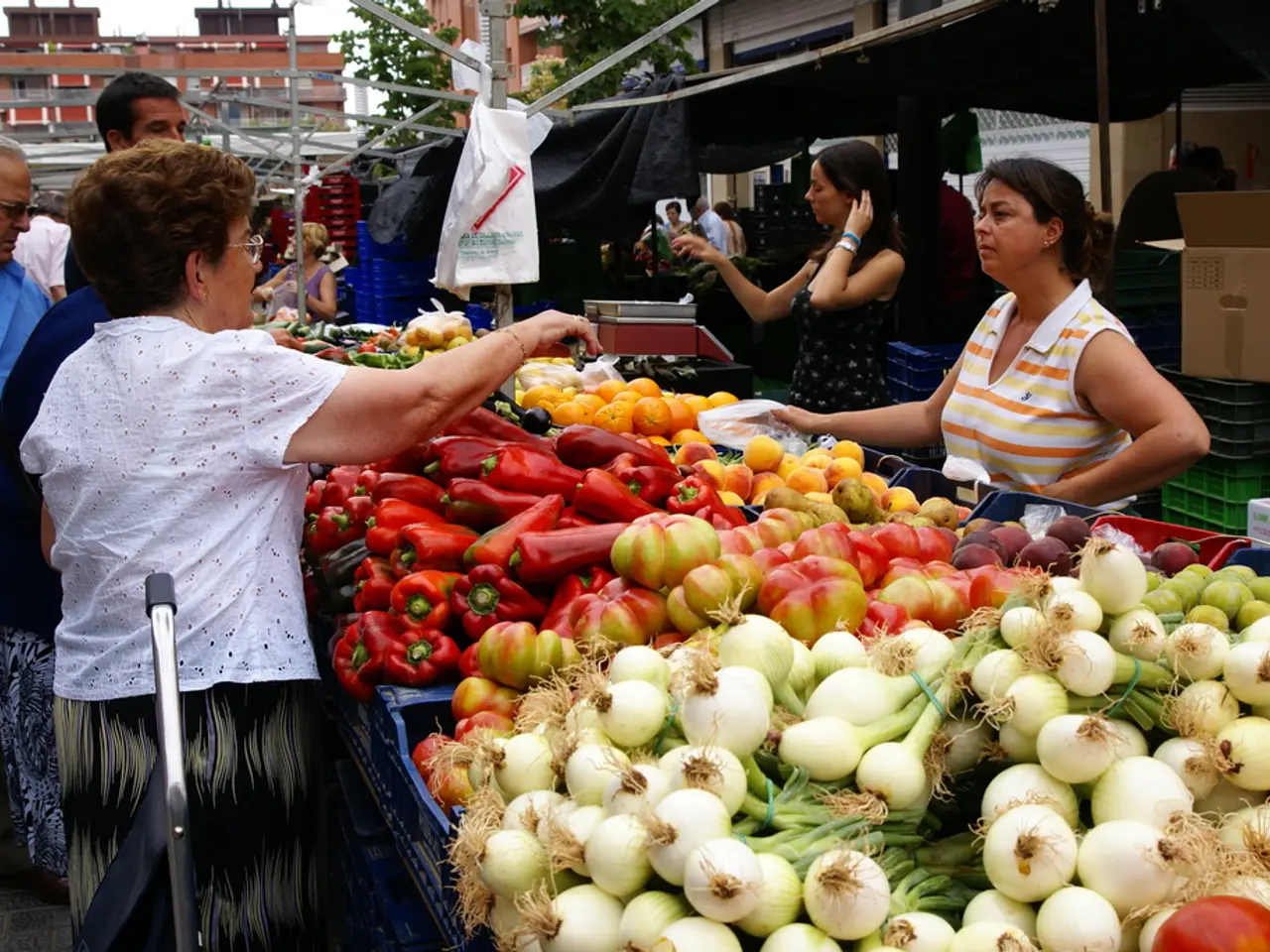Impact of Plastic Contamination on Edible Plants and Implications for Consumption
In a worrying development, scientists have warned that the increasing levels of microplastic pollution in soil could leave hundreds of millions of people without reliable access to food. This alarming prediction comes as the United Nations negotiates a binding treaty to curb plastic production and pollution.
The lack of a global map of plastic contamination in soils is a significant issue in understanding the impact of microplastics on food production. Other sources of microplastics in soil include tiny fragments from car tires and fibers from clothing.
Microplastics can be absorbed by plants through their roots when they take up water and nutrients. Once in the soil, microplastics can disrupt water movement and nutrient breakdown, affecting the growth of plants and small organisms.
According to a study, seafood yields could plunge 7%, and staple crops could see a loss of up to 13.5%. Microplastics can interfere with photosynthesis, the process by which plants convert sunlight, water, and carbon dioxide into energy. This disruption can lead to reduced plant growth and productivity.
Research indicates that microplastics can reduce photosynthesis efficiency by up to 12%, directly affecting crop biomass production and final yields. In specific cropping systems like vineyards, high microplastic concentrations alter soil microbial communities and nutrient supply, threatening both yield and quality of crops.
Global meta-analyses show that microplastic contamination adversely impacts rice growth and paddy soil properties, implying broader impacts on major crops through compromised soil health and greenhouse gas emissions. A comprehensive FAO study highlights that even very low concentrations of plastic particles in agricultural soils impair plant growth and soil microbial life, critical for crop yields. The study finds plastic contamination widespread enough to undermine global food security.
The plastic crisis requires bold political decisions and a global rethink to prevent further pollution of rivers and oceans and to ensure a sustainable future. In the meantime, measures such as the one taken in the South African township of Alexandra, where a net forms a plastic barrier in the Jukskei River to remove accumulated waste, only alleviate symptoms, not the causes.
The UN's efforts to negotiate a global treaty to curb plastic waste have so far been unsuccessful, with some oil-producing countries rejecting restrictions and targets for decreasing plastic production. The plastic crisis is a global scourge and is everywhere, including in rivers, oceans, and on land. The crisis requires immediate attention and action to protect our food supply and ensure a sustainable future.
[1] Source: Xing, J., Chen, Y., & Zhu, X. (2020). Microplastics in Soils: A Review. Environmental Pollution, 259, 114298.
[2] Source: Wang, Y., Chen, Y., & Zhu, X. (2020). Microplastics in Paddy Soils: A Review and Future Perspectives. Journal of Soils and Sediments, 20(11), 2345-2359.
[3] Source: FAO. (2020). Microplastics in Agricultural Soils: A Threat to Food Security. Food and Agriculture Organization of the United Nations.
[4] Source: Zhang, Y., Li, J., & Zhu, X. (2019). Microplastics in Soils: A Review. Environmental Pollution, 247, 55-67.
[5] Source: Müller, M., & Somaschini, R. (2019). Microplastics in Vineyards: A Review. Journal of Environmental Management, 238, 248-258.
- The increasing microplastic pollution in African soil, a significant issue in understanding its impact on food production, is a global concern highlighted in a study by Xing, Chen, and Zhu (2020).
- The disruption of water movement and nutrient breakdown caused by microplastics in soil can affect the growth of plants and small organisms worldwide, according to a review by Zhang, Li, and Zhu (2019).
- The United Nations' failure to negotiate a global treaty to curb plastic waste is problematic in light of research indicating that even very low concentrations of plastic particles in agricultural soils can impair plant growth and soil microbial life, threatening global food security (FAO, 2020).
- The alarming prediction of microplastics' impact on food production has led to the negotiation of a binding treaty by the United Nations to curb plastic production and pollution, as reported in the media. This decision aims to protect the world's climate and environment from the lasting effects of plastic pollution.








